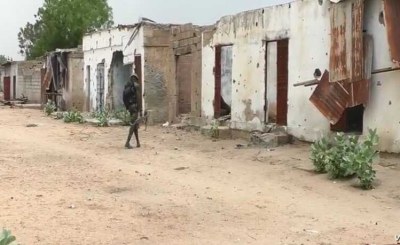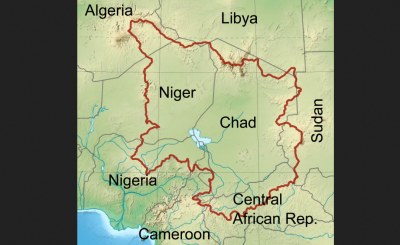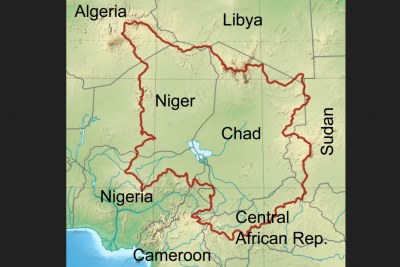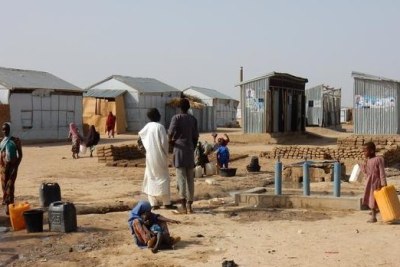-
Nigeria: How Boko Haram, Lake Chad Basin's Security Dilemmas Can Be Tackled
Premium Times, 24 January 2022
As Boko Haram factions grow in strength, solutions to the rapidly evolving crisis will become more complex in 2022. Read more »
-
Chad: No Easy Answers to Lake Chad Basin's Security Dilemmas
ISS, 24 January 2022
As Boko Haram factions grow in strength, solutions to the rapidly evolving crisis will become more complex in 2022. Read more »
-
Cameroon: Cameroon's Community Violence Adds to Lake Chad Basin Security Woes
ISS, 4 October 2021
These clashes must be prevented from taking on a regional dimension, as happened with terrorism and organised crime. Read more »
-
West Africa: Boko Haram Desertions Could Be the Tipping Point
ISS, 18 August 2021
Governments in the Lake Chad Basin region should use the ongoing departures to cripple the violent extremist group. Read more »
-
West Africa: Boko Haram and Covid-19 - Lake Chad Basin's War On Two Fronts
ISS, 29 June 2021
For those living in Boko Haram-affected areas of the Lake Chad Basin region, the risk of COVID-19 is high. The long-standing humanitarian crisis, unequal access to vaccines, the… Read more »
No Easy Answers to Lake Chad Basin's Security Dilemmas
It has been two decades since Mohammed Yusuf founded the group that became known as Boko Haram, and over a decade since its violent attacks reached the scale of an insurgency. Numerous events during this time have caused the group to evolve, including its split in 2012 and spread throughout the Lake Chad Basin region in 2013. These changes have had varying effects on the crisis and the governments' ability to find lasting solutions.
As Boko Haram factions grow in strength, solutions to the rapidly evolving crisis will become more complex in 2022. To address the violent and lengthy Boko Haram crisis, stakeholders have had to look at its root causes. This informed the push for stabilization, which sees state and non-state actors working together to improve livelihoods, education, infrastructure, public services, governance, and state-community relations, writes Teniola Tayo for the Institute for Security Studies.
As Islamic State West Africa Province (ISWAP) consolidates its influence in the region and adapts to military responses against it, more attacks will inevitably occur. And although it's been weakened, Jama'atu Ahlis Sunnah lid-Da'wati wa'l-Jihad (JAS) is trying to survive Abubakar Shekau's death with the emergence of new leaders.
ISWAP uses livelihoods as a crucial bargaining tool with communities - a trend that must be tackled in 2022. Extremists demand taxes from citizens in exchange for safe access to their farmlands and for creating markets to sell their goods. The task of bringing jobs into the region and securing farming, fishing, and trading must be urgently attended to by those responsible for stabilization.
InFocus
-
Four countries share borders - Nigeria, Chad, Niger and Cameroon - within Lake Chad, one of the largest lakes in Africa, and have formed a political union, the Lake Chad Basin ... Read more »
-
Extremist attacks, primarily in northern Nigeria, have killed tens of thousands of people since 2011, and displaced more than 2,5 million in the eight-nation Lake Chad Basin - ... Read more »
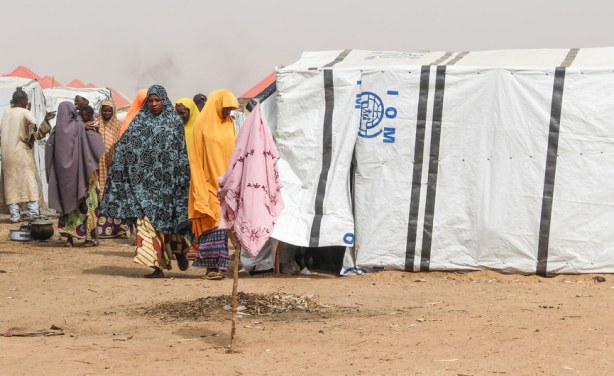
Gubio Camp in Maiduguri has received 4,500 new arrivals since November 2018, many of them in recent weeks following an attack by non-state armed groups in Baga, near the shores of Lake Chad, in north-east Nigeria (file photo).
